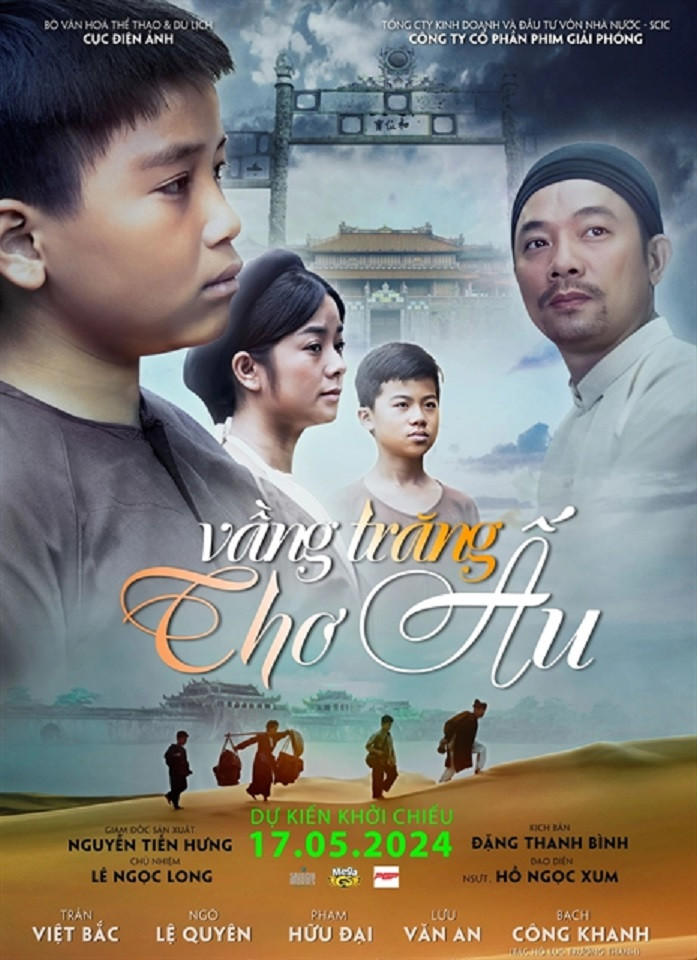
Entitled Vầng Trăng Thơ Ấu (The Childhood Moon), the movie is a production by the Giải Phóng (Liberation) Film Joint Stock Company and was directed by Hồ Ngọc Xum. It is to celebrate the 134th birthday of the late President (May 19), and 113 years of his departure to find a way to save the nation (June 5).
The movie script earlier won third prize in a feature film script writing contest organised by the Department of Cinematography in 2020.
Vầng Trăng Thơ Ấu is set from 1895 to 1901 when Nguyễn Sinh Cung [Uncle Hồ’s childhood name], together with his father Nguyễn Sinh Sắc, his mother Hoàng Thị Loan, and his brother Nguyễn Sinh Khiêm, went to Huế for the first time. His family moved to the imperial citadel for his father to pursue his studies and take an exam to become a mandarin.
During more than five years living in Huế, the boy saw many new things compared to his hometown of Nghệ An Province. Despite having many beautiful houses and majestic palaces, the imperial citadel has also revealed clear class conflicts.
Nguyễn Sinh Cung also witnessed the oppressive rule of the French colonialists, their arrogance and cruelty, as well as the effeminateness and timidity of court officials in front of the French.
Also during his time in Huế, Nguyễn Sinh Cung had to go through a life event when his mother Hoàng Thị Loan, after giving birth to her fourth child, Nguyễn Sinh Nhuận, passed away on February 10, 1901.
Dealing alone with the occurrence as his father Nguyễn Sinh Sắc and his brother Nguyễn Sinh Khiêm weren’t in Huế at that time, the then 11-year-old boy Nguyễn Sinh Cung had to carry out the interment of his mother as Tết (Lunar New Year Festival) was approaching.
Director Xum said that what makes him most interested in this movie project is that it portrays Uncle Hồ’s childhood as an innocent, normal child with many mischievous pranks like any other his peers.
He said: “Initially, I had no intention of involving the movie but when I finished reading the script, I was fascinated by some details. Before saying ‘Yes’ to the Giải Phóng Film Company, I decided to go to Huế and Nghệ An to have the on-site check to get the practical situation.”
The time living in Huế with numerous family and social upheavals has greatly contributed to the intellectual and perceptual growth of young Nguyễn Sinh Cung. It served as a foundation for his later wise decision-making as a communist revolutionary, nationalist and politician.
In addition to adhering to historical facts with the guidance of historians, the film also incorporates some fictional details. VNS